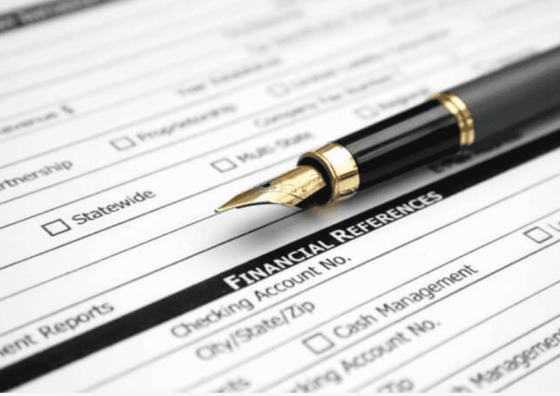If you’re about to receive a tax refund, but you still haven’t paid your child support, you might be worried about losing the refund. However, this can only happen under certain conditions, and there are ways to stop it.
Here’s what you need about how to stop child support from taking tax refunds in the future period.
How to Prevent the Tax Refund Loss
If the money you owe for child support exceeds a certain amount, the state may try to balance the loss by garnishing your wages or taking the owed amount from your tax refund. This is also known as the Federal Tax Refund Offset Program.
What you should know is that you can’t really stop this process once it starts.
So, the real question here isn’t how to stop child support from taking the tax refund but how to prevent the process from starting — and we’ll walk you through everything you can do.
Check Whether You Have Offsets
The first question you should be asking is — how much do you have to owe in child support for them to take your taxes? The only way to know for sure is to check your state’s laws, as most of them will have such information listed online.
If you can’t find it, you should assume the amount is the same as the federal standard, which is one monthly payment plus either $150 for those who are a part of the Temporary Assistance for Needy Families program or $500 for everybody else.
Keep in mind that if you owe child support for more than one child, the amount you owe can be calculated together.
If you don’t know how much you owe, call a toll-free IRS offset phone number ((800) 304-3107). There, you can ask for information about offsets and if you have any pending.
Child Support and Tax Refunds in 2022/23
How to stop child support from taking your tax refund in 2022? There are a couple of things you should know first.
You’ll be notified of the process about 65 days before the offset begins. You may get only one notice, and offsets will keep adding up until your debt is paid either in full or enough for you to be under the threshold.
You may avoid losing any tax money if you start repaying your debt during that 65-day period. If you’re struggling financially, a short-term loan can be helpful in this case.
Even after the 65-day timeframe, you can go into a rehabilitation agreement and make the necessary payments.
You can also object to the request, and your objection will be reviewed. If your reasons are valid, your tax refund and other federal payments will remain untouched.
Another thing to keep in mind is that the treasury offset program was suspended in 2022. This means that there will be no action against the debtor while the suspension lasts — the process will resume as soon as the period ends.
What Else Can Be Affected by Your Child Support Debt
Your tax refund isn’t the only thing that can be reduced if you owe child support payments. Of course, there are still ways to prevent the things we’ll list below, but you should know how owing money for child support can gravely affect you financially.
Second Stimulus Check
Will child support take my second stimulus check?
By law, child support can take your first stimulus check if you owe child support payments.
Your second and third stimulus checks can’t be reduced by child support debts. However, only your second one is safe from other debts and creditors.
Child Tax Credit
Can child support take my Child Tax Credit?
Child Tax Credit payments can’t be taken if you’re late on your child support payment. They also can’t be reduced if you have any other debts.
However, if you get your tax return and there’s any amount of child tax credit included in that refund, it could be used for the child support debt.
Also, keep in mind that your Child Tax Credit can affect your tax refund as well.
Your Salary
Can child support take your whole paycheck?
Child support can’t take your whole paycheck, but it can take a large part of it.
If you have a second family, you can lose up to 50% of your paycheck. If you don’t, child support can take up to 60% of your paycheck. Moreover, if you’ve been behind on your payments for three months or more, these limits can be increased by 5%.
Also, keep in mind that some states have their own limits, so make sure to check this information beforehand.
Conclusion
As you can see, not paying child support on time can lead to you losing your tax refund and even a large part of your paycheck. However, there are ways to avoid that by getting informed and acting in a timely manner. Hopefully, this article helps you do exactly that.
FAQs
Can the IRS take all my refund for child support?
If you owe more than a monthly payment + $500, then yes, the IRS can take your refund for child support. If your child receives public assistance, then the amount is lowered to $150, and the payments need to be three months late.
However, as you can see from this short article, there are things you can do to prevent the process from starting in the first place.
Is child support taxable?
According to the IRS, payments made for the purpose of child support are neither taxable nor deductible. This means that when you calculate your income to see if you should file for a tax return or not, you shouldn’t include child support payments that you receive.
What happens when the IRS takes your refund for child support?
The money (that is, offset from your refund) can go to:
- The government (if you still owe money and your children have received financial help in the past).
- The parent that’s owed child support.
- You (if you’ve settled a part of the debt, what remains of the offset will be returned to you).
Can I stop my tax refund from being garnished?
Yes, you can. There are a few things you can do to prevent your tax refund from being garnished:
- Stay under the offset threshold.
- Repay the debt before the process starts.
- Go into a rehabilitation agreement.
So, if you need to know how to stop child support from taking your tax refund, the best thing you can do is get under the offset threshold before the process officially starts.






